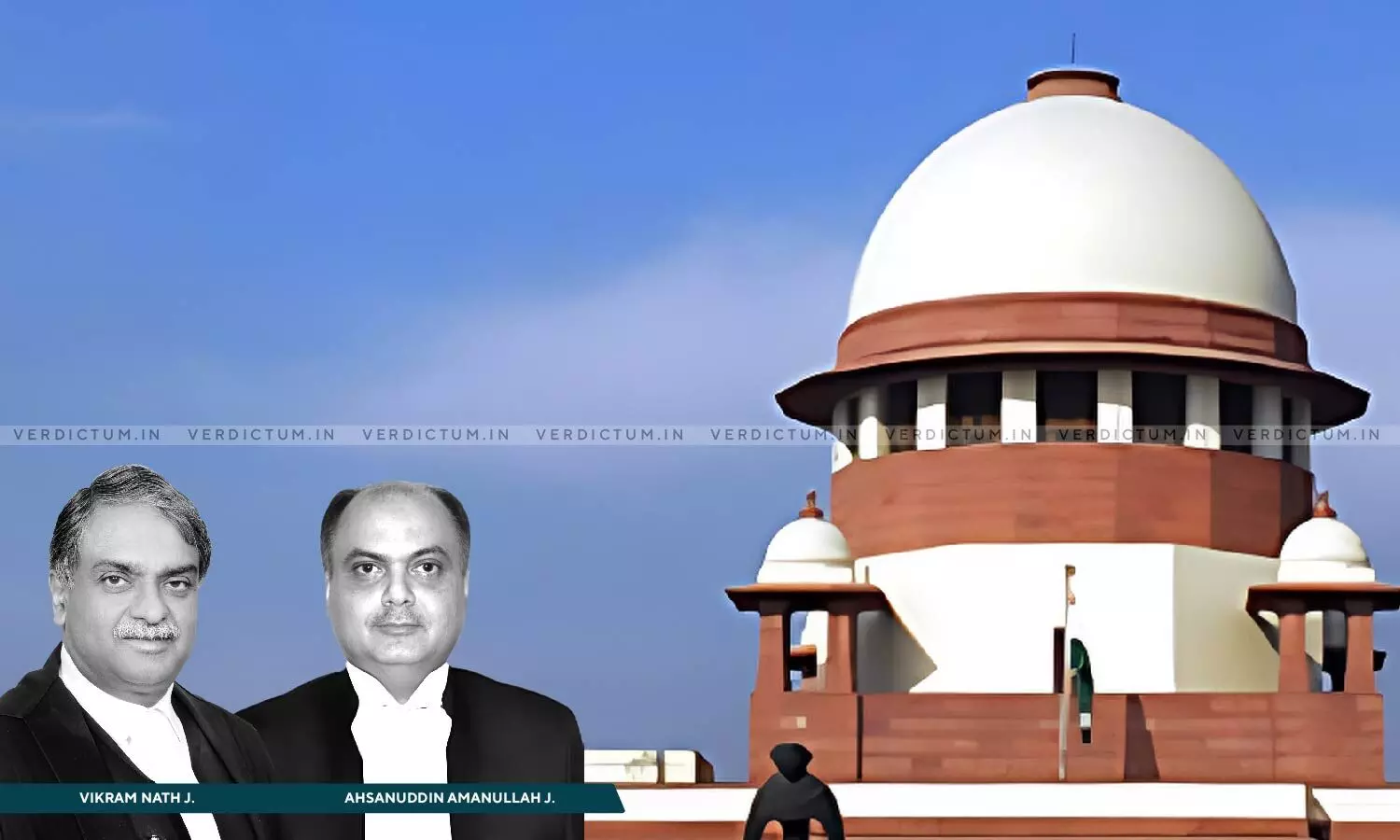
Protection Against Vexatious & Unwanted Prosecution And From Being Unnecessarily Dragged Through Trial Is Duty Of High Courts: SC
 |
|The Supreme Court observed that the protection against vexatious and unwanted prosecution and from being unnecessarily dragged through a trial is a duty cast on the High Courts.
The Court was deciding an appeal against the judgment of the Allahabad High Court that had upheld the order of the Chief Judicial Magistrate, Lucknow rejecting the prayer for discharge of the accused in a theft case.
The two-Judge Bench of Justice Vikram Nath and Justice Ahsanuddin Amanullah held, “The protection against vexatious and unwanted prosecution and from being unnecessarily dragged through a trial by melting a criminal proceeding into oblivion, either through quashing a FIR/Complaint or by allowing an appeal against an order rejecting discharge or by any other legally permissible route, as the circumstances may be, in the deserving case, is a duty cast on the High Courts. The High Court should have intervened and discharged the appellants. But this Court will intervene, being the sentinel on the qui vive.”
Advocate Vinod Kumar Tewary represented the appellants while Advocate Adarsh Upadhyay represented the respondents.
In this case, the allegations were that the complainant/respondent no. 2 was a tenant of a shop situated in the house of one Hari Narayan Shukla. On June 29, 2011, the appellants i.e., husband and wife, along with others, locked the door of the complainant’s shop from inside, broke the wall and looted wheat (APL), sale money, about INR 21,000 worth of kerosene oil, goods in stock, all the registers of the shop, documents and a two-wheeler.
The aforesaid led to the filing of an FIR under Sections 448, 454 and 380 of the Indian Penal Code, 1860 (hereinafter referred to as IPC). The Trial Court rejected the prayer for discharge of the said couple under Sections 482, 378, and 407 of the Criminal Procedure Code (hereinafter referred to as Cr.PC.). Thereafter, the High Court upheld the decision of the Trial Court. Hence, the aggrieved couple approached the Apex Court.
The Supreme Court in view of the above facts noted, “Having examined the matter in detail, a case for interference has been made out. The fact is that the Indian National Rupee symbol i.e., ₹ was not in existence during the time the purported ‘Memorandum’ was signed. Furthermore, R2 has based his entire claim of tenancy on a document which has been, prima facie, found to be forged and fabricated, for which the Court concerned has directed lodging of a criminal case. There is no other claim by R2 to show that he was in possession. When coupled with the fact that the police did not find any offences having been made out against the appellants under Sections 454 and 380, IPC, the case against the appellants under Section 448, IPC finds itself on shaky ground. R2 never objected to the above nor took any further steps. R2, as noted above, has not entered appearance before this Court.”
The Court further said that the case against the appellants finds itself on shakier ground and that the criminal case filed by the complainant amounts to the clear abuse of the process of the court.
“On a careful conspectus of the legal spectrum, juxtaposed with our view on the facts and merits expressed hereinbefore, we are satisfied that there is no suspicion, much less strong or grave suspicion that the appellants are guilty of the offence alleged. It would be unjustified to make the appellants face a full-fledged criminal trial in this backdrop. In an appeal dealing with the refusal of the High Court to quash an FIR under Section 482, CrPC albeit, this Court, while setting aside the judgment impugned therein and quashing that FIR, took the view that ‘…the Appellants are to be protected against vexatious and unwarranted criminal prosecution, and from unnecessarily being put through the rigours of an eventual trial”, also noted the Court.
With respect to the case of Minakshi Bala v Sudhir Kumar, (1994) 4 SCC 142, the Court clarified that it has expressed its doubt on the limited aspect and yet did not find any need to burden a larger Bench to reconsider the said judgment.
Accordingly, the Apex Court allowed the appeal and set aside the judgment of the High Court.
Cause Title- Vishnu Kumar Shukla & Anr. v. The State of Uttar Pradesh & Anr. (Neutral Citation: 2023 INSC 1026)